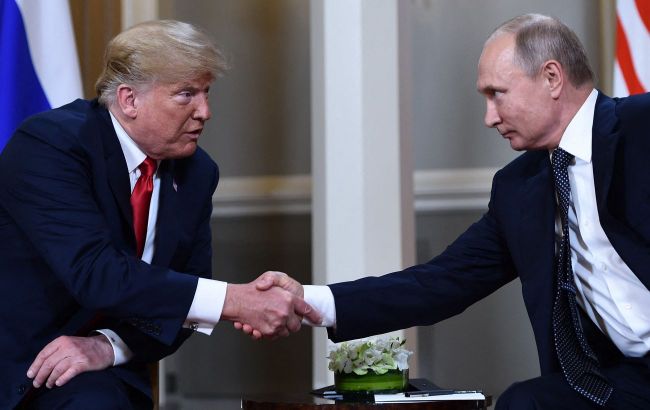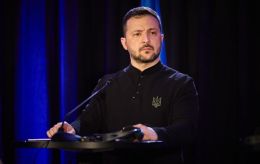Authoritarian leanings: Expert explains why Trump will always side with Putin
 Photo: US President Donald Trump and Russian President Vladimir Putin (Getty Images)
Photo: US President Donald Trump and Russian President Vladimir Putin (Getty Images)
US President Donald Trump sees himself as an authoritarian leader and gravitates toward those alike. That is why he will always lean toward Russian President Vladimir Putin, Mark Ellis, Executive Director of the International Bar Association and expert in international law, said this in an interview with RBC-Ukraine.
"I'll say what I've already said publicly about Trump's interactions with Putin. The problem with Trump is clear. I remember being here in January, and there was excitement because Trump was saying, 'I’m going to end this war. Putin will do what I say. If he doesn't, I'll respond hard,'" he noted.
The lawyer emphasized that none of Trump’s positions are stable. According to him, despite loud statements, the American politician will always gravitate toward Putin, since he sees in him a kindred authoritarian leader.
"At times, Trump may give people hope with one of his erratic statements on Truth Social, but what he says today will likely be contradicted by what he says tomorrow. You simply can't depend on it," Ellis stressed.
He added that the world should accept the reality of Trump’s behavior on the international stage and build an interaction process that would allow working with him more effectively.
Trump’s statements
Immediately after his re-election, President Donald Trump declared that he seeks to end wars around the world. During his election campaign, he repeatedly promised to stop the war in Ukraine within 24 hours.
Trump emphasized, "I know Zelenskyy well. I know Putin well. It will be easy."
However, already in March 2025, following public remarks about Russian troops, Trump expressed outrage at the Kremlin’s actions, "I am very angry with Putin."
He also threatened to impose secondary tariffs on Russian oil if Moscow refused to agree to peace.
In April of that year, in an interview with Time, Trump explained that his earlier words about ending the Russia-Ukraine war "in one day" had been figurative.
By September 2025, he admitted that ending the war in Ukraine turned out to be far more difficult than he had expected.
Trump also began to doubt his ability to influence the Kremlin leader on the issue of the war in Ukraine.

